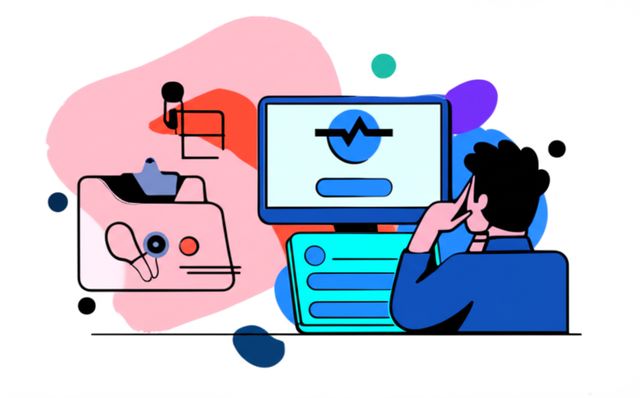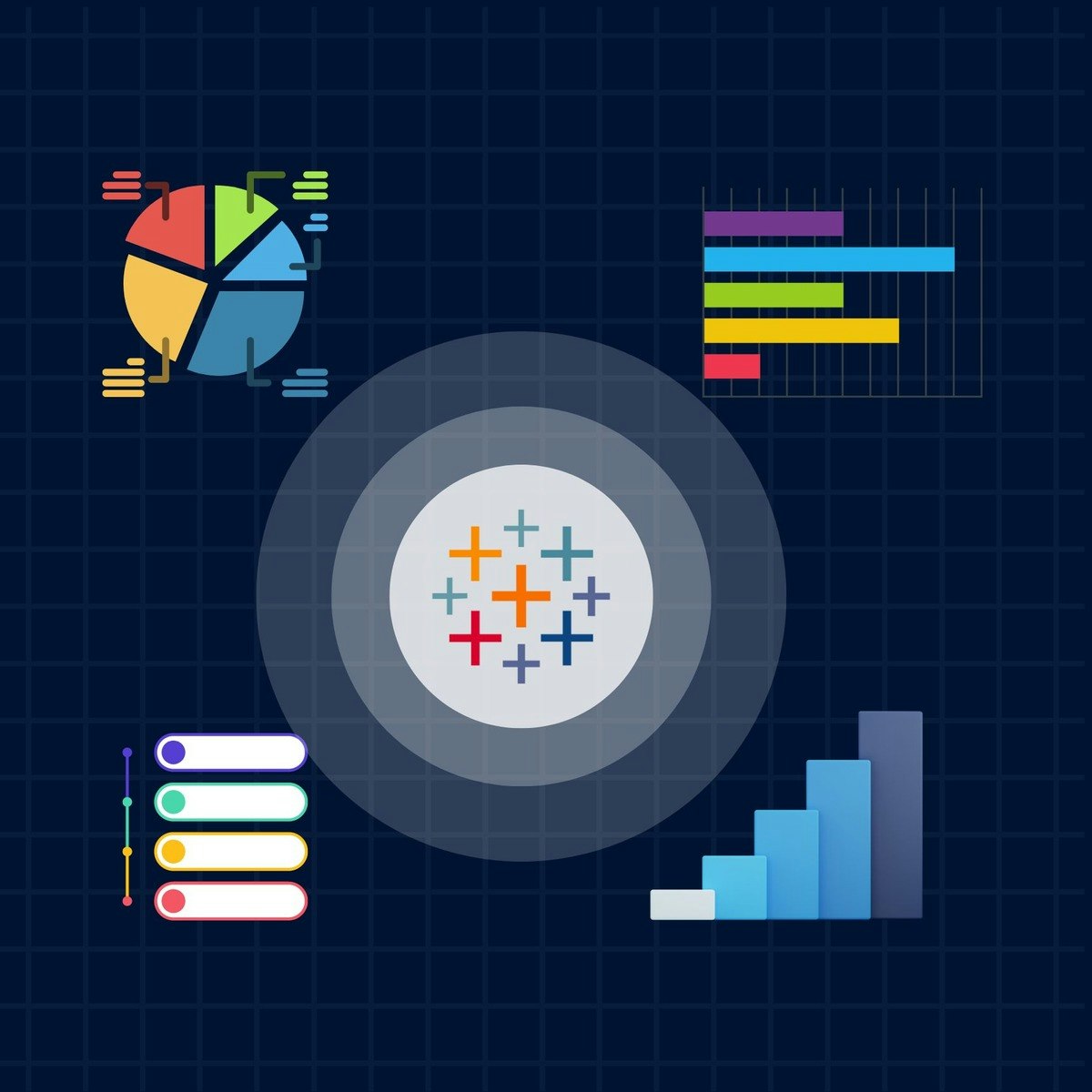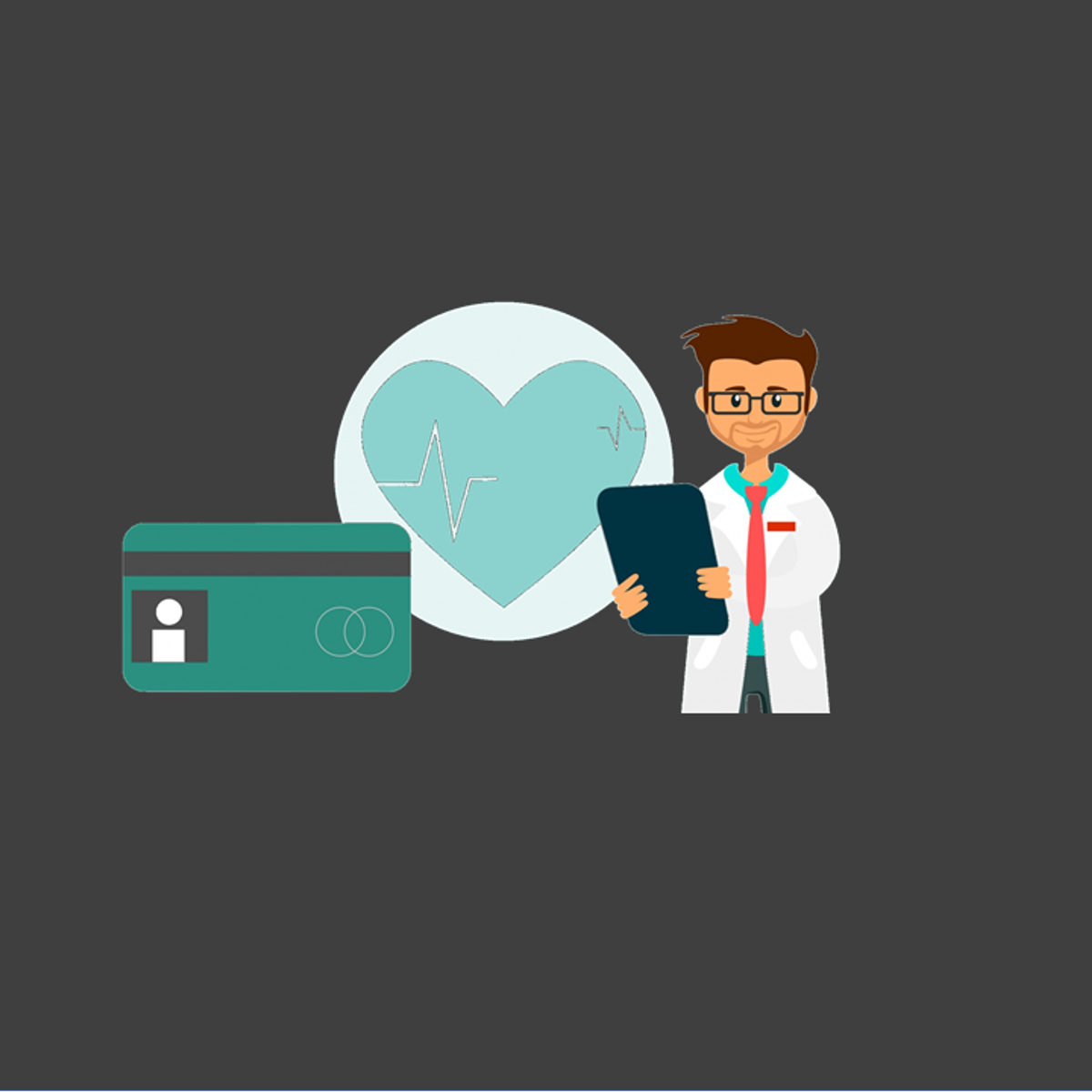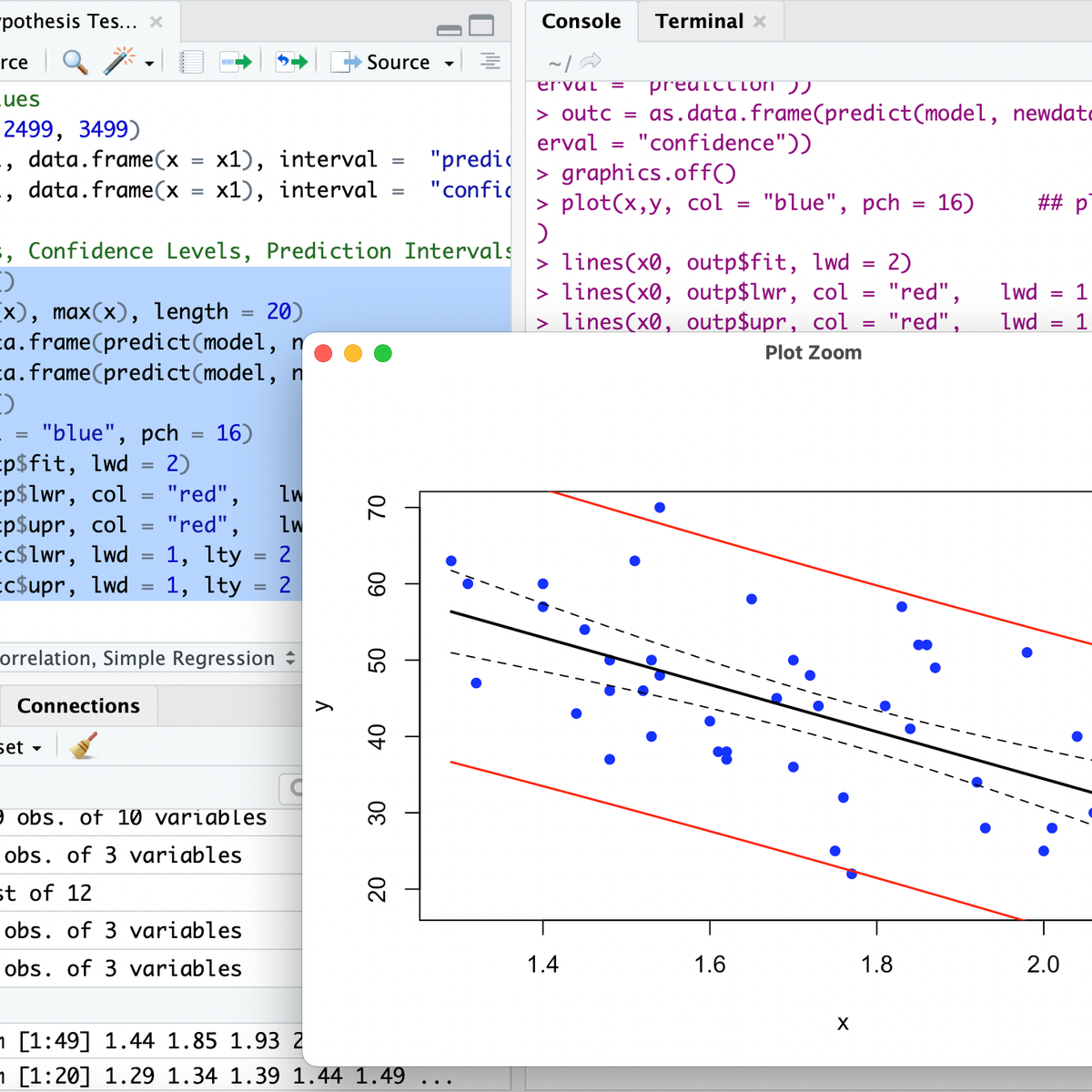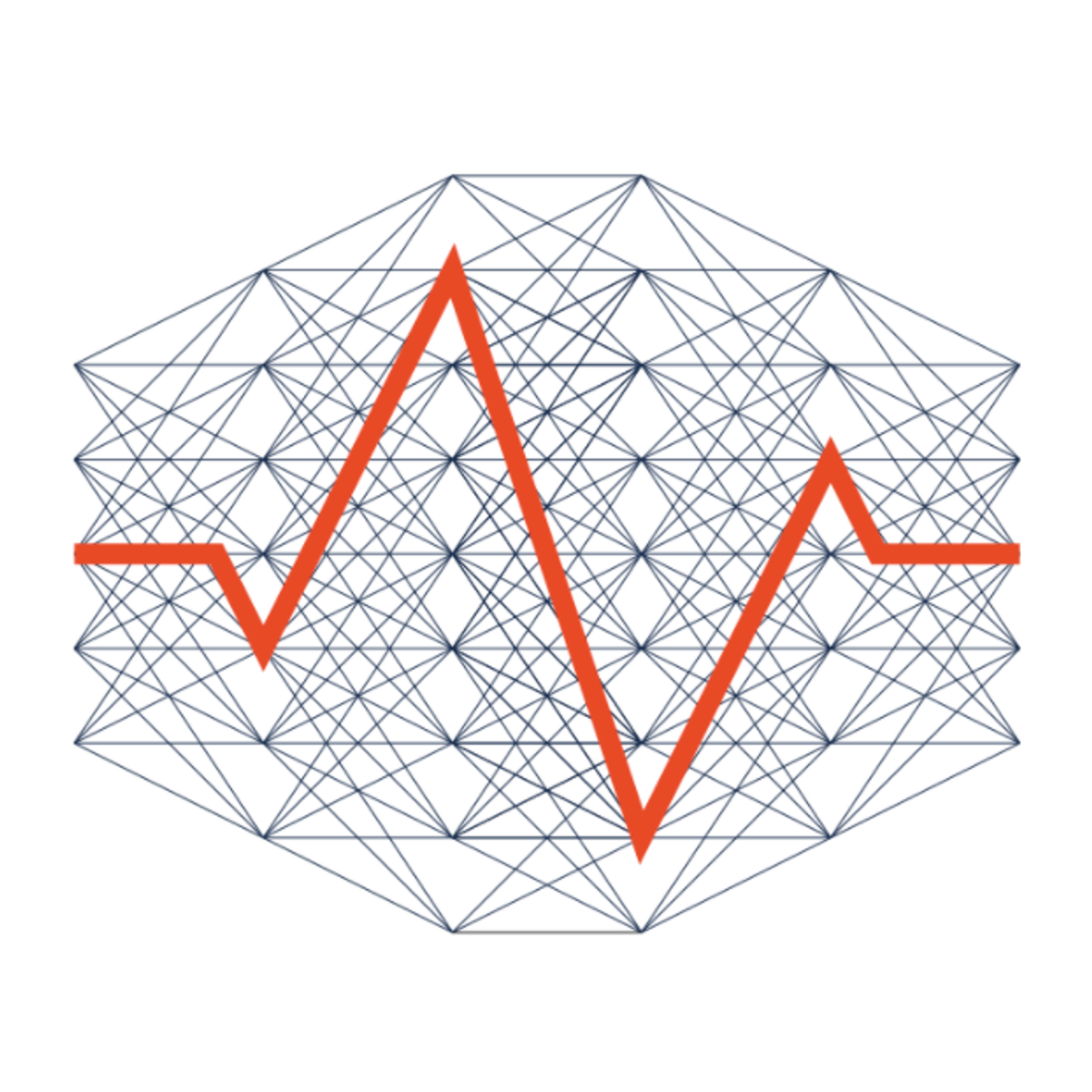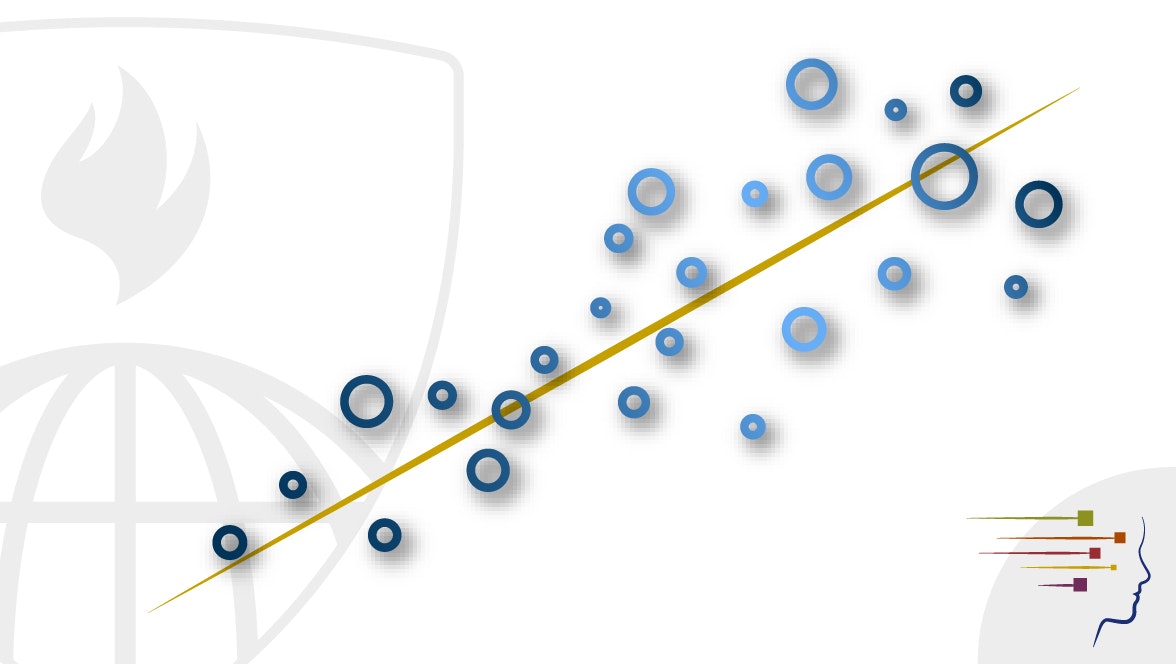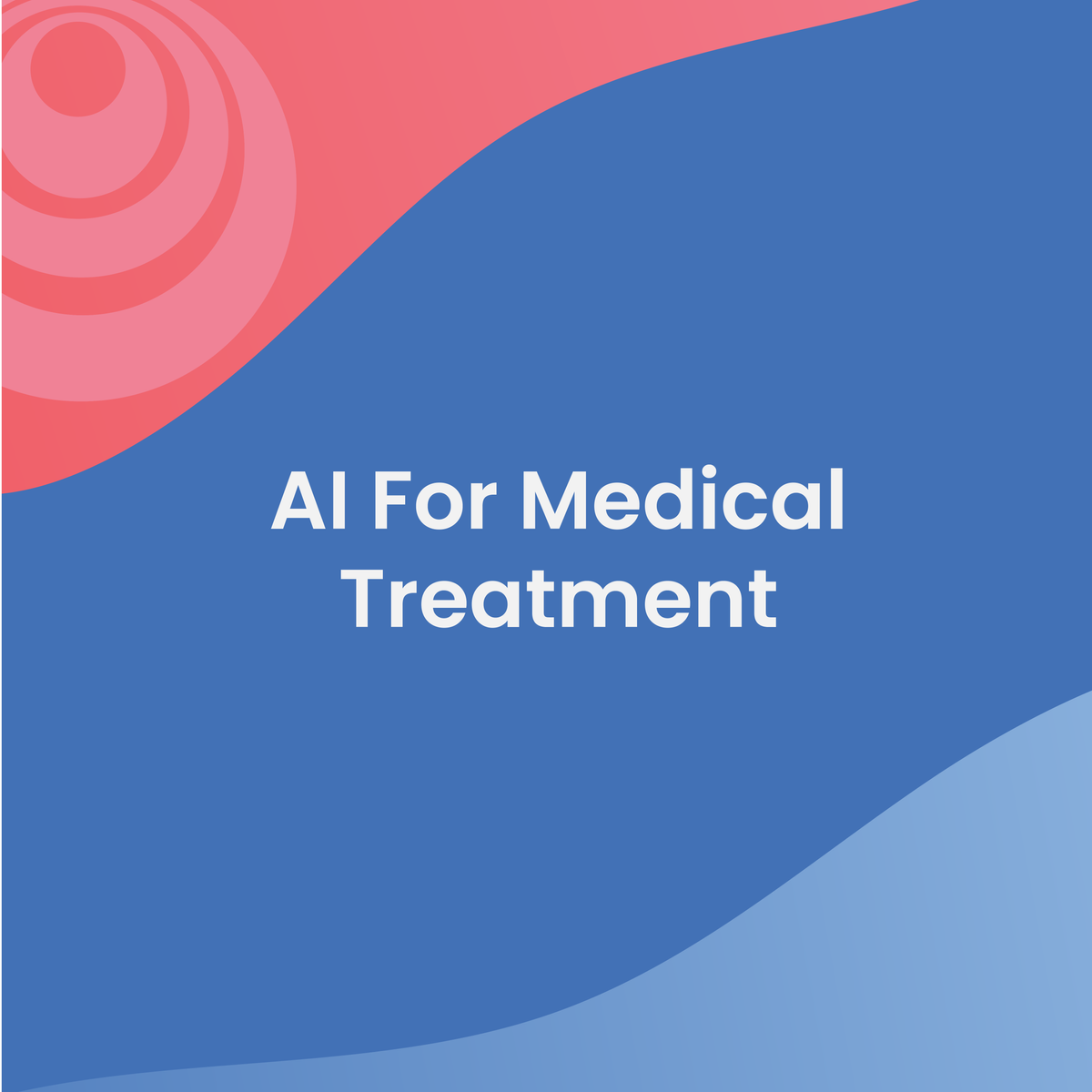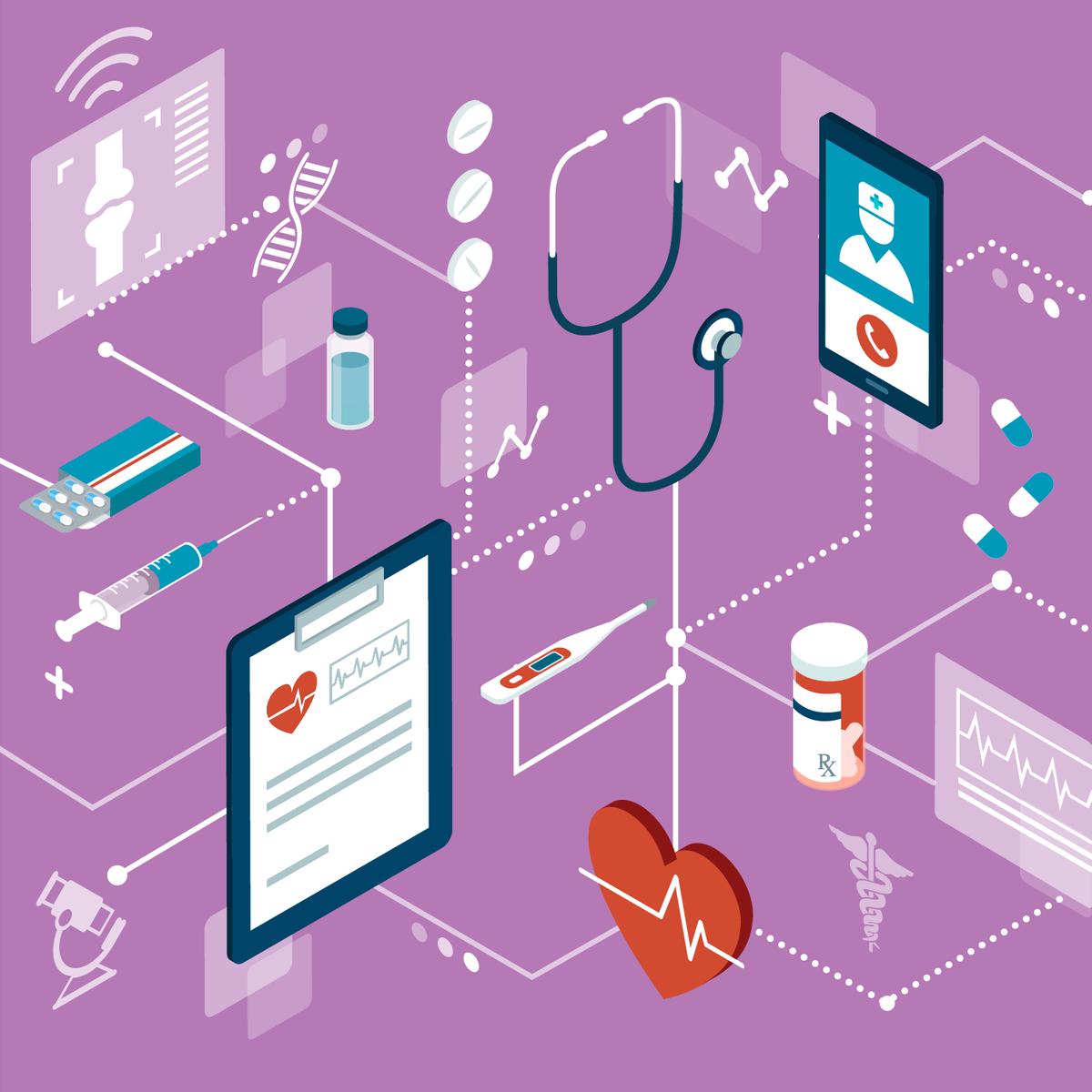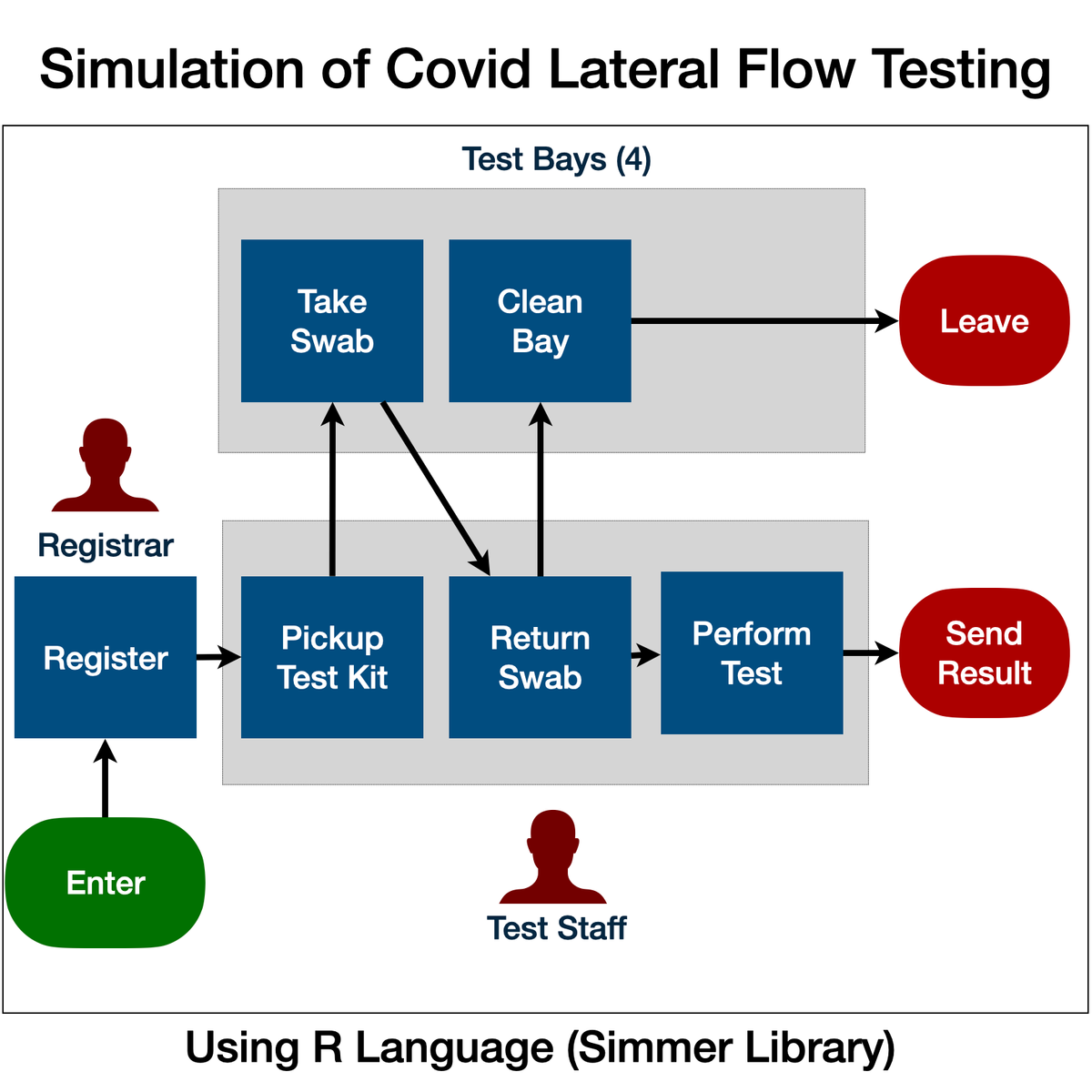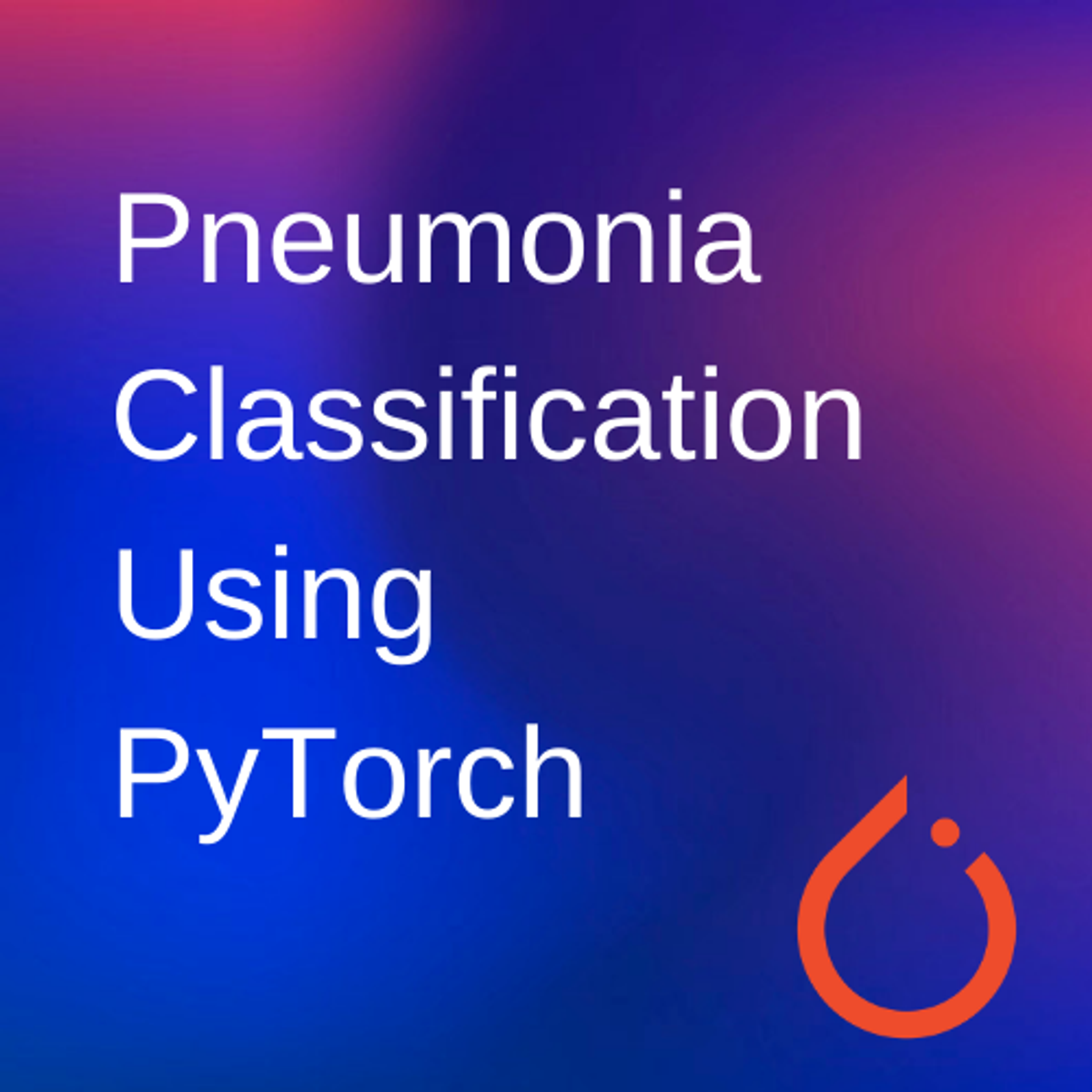Healthcare Analyst
Exploring a Career as a Healthcare Analyst
A Healthcare Analyst plays a crucial role within the healthcare industry, focusing on the collection, analysis, and interpretation of health-related data. Their primary goal is to leverage data to improve patient care, optimize operational efficiency, enhance financial performance, and inform strategic decision-making within healthcare organizations. Think of them as detectives using data clues to solve complex problems in hospitals, clinics, insurance companies, and public health agencies.
Working as a Healthcare Analyst can be deeply engaging. You might find yourself uncovering insights that lead to better patient outcomes, designing systems that make healthcare delivery more efficient, or helping organizations navigate the complex landscape of healthcare regulations and finances. It's a field where analytical skills meet a mission-driven purpose, offering the chance to make a tangible impact on people's health and well-being.
Introduction to Healthcare Analyst
What is a Healthcare Analyst?
At its core, a Healthcare Analyst transforms raw healthcare data into meaningful information. This involves gathering data from various sources like electronic health records (EHRs), patient surveys, billing systems, and clinical trials. They then apply statistical methods and data visualization techniques to identify trends, patterns, and areas for improvement.
The role requires a blend of technical proficiency, analytical thinking, and an understanding of the healthcare domain. Analysts must communicate their findings clearly to diverse audiences, including clinicians, administrators, and policymakers, enabling them to make informed decisions based on evidence rather than intuition alone.
Ultimately, the purpose of a Healthcare Analyst is to drive positive change within the healthcare system. Whether it's reducing hospital readmission rates, identifying cost-saving opportunities, ensuring compliance with regulations, or predicting disease outbreaks, their work directly contributes to a more effective, efficient, and patient-centered healthcare landscape.
The Evolution of Healthcare Analytics
The field of healthcare analytics isn't entirely new, but its scope and importance have exploded in recent decades. Initially, analysis often involved manual chart reviews and basic statistical reporting. The advent of digital records and more powerful computing significantly changed the game, allowing for more complex analyses on larger datasets.
The push towards evidence-based medicine and value-based care models further accelerated the demand for sophisticated analytics. Organizations needed ways to measure quality, track outcomes, and demonstrate value, tasks perfectly suited for skilled analysts. Regulations like the HITECH Act, encouraging EHR adoption, also generated vast amounts of data, creating fertile ground for analytical exploration.
Today, the field continues to evolve rapidly with the integration of big data technologies, artificial intelligence, and machine learning. These advancements enable more predictive and prescriptive analytics, moving beyond simply describing what happened to predicting future events and recommending optimal actions.
Where Do Healthcare Analysts Work?
Healthcare Analysts are employed across a wide spectrum of organizations within the health sector. Hospitals and health systems are major employers, using analysts to track clinical quality, patient safety, operational efficiency, and financial health. Analysts help identify bottlenecks in patient flow, measure physician performance, and support quality improvement initiatives.
Insurance companies (payers) rely heavily on analysts to manage risk, set premiums, detect fraud, and analyze claims data to understand healthcare utilization patterns. Pharmaceutical companies and medical device manufacturers employ analysts for market research, clinical trial analysis, and post-market surveillance.
Government agencies at the local, state, and federal levels utilize healthcare analysts for public health surveillance, policy development, and program evaluation. Consulting firms specializing in healthcare also hire analysts to assist various clients with data-driven projects. Lastly, research institutions and universities employ analysts to support health services research and clinical studies.
Key Responsibilities of a Healthcare Analyst
Data Collection and Analysis
A fundamental responsibility is gathering relevant data. This might involve extracting data from complex databases like Electronic Health Record (EHR) systems, querying data warehouses, or designing surveys. Ensuring data quality, accuracy, and completeness is a critical first step before any analysis can begin.
Once collected, analysts clean, transform, and analyze the data using various statistical techniques and software tools. They look for trends in patient diagnoses, treatment effectiveness, resource utilization, or operational metrics like appointment wait times or bed occupancy rates. The goal is to identify patterns, anomalies, and correlations that provide actionable insights.
Analysts often use tools like SQL to retrieve data, statistical software like R or SAS for analysis, and visualization tools like Tableau to present findings. They analyze metrics related to clinical quality (e.g., infection rates), operational performance (e.g., emergency department throughput), and financial health (e.g., cost per case).
These courses offer foundational skills in data manipulation and analysis relevant to healthcare settings.
Regulatory Compliance Reporting
The healthcare industry is heavily regulated. Analysts play a key role in ensuring their organizations meet reporting requirements mandated by government agencies like the Centers for Medicare & Medicaid Services (CMS) and adhere to privacy regulations like the Health Insurance Portability and Accountability Act (HIPAA).
This involves generating reports on quality measures, patient safety indicators, and other performance metrics required for reimbursement programs or public reporting initiatives. Analysts must understand the specific definitions and calculation methodologies for these measures, which often change over time.
Ensuring data privacy and security is paramount. Analysts must handle sensitive patient information responsibly, implementing safeguards and adhering to strict protocols when accessing, analyzing, and sharing data to comply with HIPAA and other relevant regulations. This often involves de-identifying data or working within secure data environments.
Understanding medical coding systems is often necessary for compliance reporting and accurate data analysis.
Cost-Benefit Analysis and Financial Modeling
Healthcare organizations constantly seek ways to deliver high-quality care cost-effectively. Analysts contribute by conducting cost-benefit analyses for new treatments, technologies, or operational changes. They evaluate the financial implications of different interventions, helping leaders make resource allocation decisions.
This might involve analyzing the costs associated with a specific clinical pathway versus its impact on patient outcomes or comparing the expense of implementing a new scheduling system against potential savings from reduced no-show rates. They model different financial scenarios to understand potential impacts.
Analysts often work closely with finance departments to track departmental budgets, analyze revenue cycles, and identify opportunities for cost reduction or revenue enhancement. Their analysis helps bridge the gap between clinical operations and financial performance, ensuring sustainability.
Predictive Modeling and Forecasting
A growing area of responsibility involves using historical data to build predictive models. These models can forecast future trends, such as patient admission volumes, disease outbreaks, or the likelihood of patients developing certain conditions or experiencing adverse events like hospital readmissions.
Techniques range from traditional statistical forecasting methods to more advanced machine learning algorithms. For example, an analyst might develop a model to identify patients at high risk for sepsis, allowing for earlier intervention, or forecast staffing needs based on predicted patient demand.
These predictive insights help organizations proactively allocate resources, implement preventative measures, and personalize patient care. The ability to anticipate future needs and risks is becoming increasingly valuable in managing population health and navigating value-based care arrangements.
These courses introduce predictive modeling techniques applicable in healthcare.
Essential Skills for Healthcare Analysts
Technical Proficiency
Strong technical skills form the bedrock of a Healthcare Analyst's toolkit. Proficiency in database query languages, particularly SQL, is essential for extracting and manipulating data from relational databases and data warehouses, which are common in healthcare settings.
Familiarity with data visualization software like Tableau or Power BI is crucial for creating clear, compelling dashboards and reports that communicate complex findings effectively to non-technical audiences. Experience with statistical programming languages such as R or Python is increasingly valuable for performing more advanced analyses and building predictive models.
Knowledge of Electronic Health Record (EHR) systems (like Epic, Cerner, etc.) and how data is structured within them is also highly advantageous, though specific system knowledge often comes with on-the-job experience. Understanding data warehousing concepts and ETL (Extract, Transform, Load) processes can also be beneficial.
These courses provide introductions to key technical tools used by analysts.
Analytical and Statistical Skills
Beyond technical tools, strong analytical and critical thinking skills are paramount. Analysts must be able to approach problems systematically, formulate relevant questions, identify appropriate data sources, and choose suitable analytical methods.
A solid understanding of statistical concepts and methods is necessary. This includes descriptive statistics (mean, median, standard deviation), inferential statistics (hypothesis testing, confidence intervals), regression analysis, and potentially more advanced techniques depending on the role, such as time series analysis or survival analysis.
Experience with specific healthcare analytical techniques, such as risk adjustment modeling (used to compare outcomes while accounting for patient population differences) or quality measure calculation, is highly valuable. The ability to interpret statistical output correctly and translate it into practical implications is key.
These courses cover essential statistical methods often applied in healthcare analytics.
These books delve deeper into statistical theory and application.
Healthcare Domain Knowledge
Effective healthcare analysis requires more than just technical and statistical skills; it demands an understanding of the context – the healthcare system itself. Knowledge of healthcare operations, clinical workflows, and common medical terminology is essential for interpreting data accurately and asking relevant questions.
Familiarity with healthcare policy, reimbursement models (e.g., fee-for-service vs. value-based care), and major regulations (HIPAA, CMS guidelines) provides crucial context for analysis. Understanding how different parts of the system interact – providers, payers, patients, regulators – is vital.
Knowledge of medical coding systems, such as ICD-10 (International Classification of Diseases) for diagnoses and CPT (Current Procedural Terminology) for procedures, is often required for working with clinical and billing data. This domain expertise allows analysts to translate data findings into meaningful clinical or business insights.
This course provides an overview of the healthcare ecosystem.
This book focuses specifically on medical informatics.
Communication and Collaboration Skills
Healthcare Analysts rarely work in isolation. They need strong communication skills to explain complex analytical findings to diverse audiences, including clinicians who may not be data experts and executives who need concise summaries for decision-making. This involves both written reports and verbal presentations.
The ability to translate technical jargon into understandable language is crucial. Data visualization plays a key role here, but so does the ability to craft a clear narrative around the data, highlighting key insights and recommendations.
Collaboration is also essential. Analysts often work on cross-functional teams with doctors, nurses, administrators, IT staff, and finance professionals. Building relationships, understanding different perspectives, and effectively managing stakeholder expectations are important aspects of the role.
Formal Education Pathways
Relevant Undergraduate Degrees
A bachelor's degree is typically the minimum educational requirement for entry-level Healthcare Analyst positions. Several fields of study provide a strong foundation. Degrees in Health Informatics or Health Information Management directly blend healthcare knowledge with data management and analysis skills.
Quantitative fields like Statistics, Mathematics, Economics, or Computer Science equip students with essential analytical and technical skills that are highly transferable to healthcare. A background in these areas often requires supplementary learning or experience to gain healthcare-specific domain knowledge.
Degrees in Public Health provide a solid understanding of health systems, epidemiology, and health policy, often incorporating biostatistics coursework. Business Administration degrees, particularly with a concentration in healthcare management or information systems, can also be relevant, offering a blend of business acumen and analytical training.
Explore courses relevant to these fields on OpenCourser under categories like Health & Medicine, Data Science, and Mathematics.
Graduate Programs and Specializations
For more advanced roles or specialized areas, a graduate degree can be beneficial or even required. A Master of Public Health (MPH), particularly with a concentration in Epidemiology or Biostatistics, is a common pathway, offering rigorous training in quantitative methods and health research.
Master's degrees specifically in Health Informatics, Healthcare Analytics, or Health Data Science are becoming increasingly prevalent. These programs provide targeted training in the tools, techniques, and domain knowledge needed for advanced analytical roles in healthcare.
Other relevant master's degrees include those in Statistics, Biostatistics, Data Science, or Business Administration (MBA) with a healthcare focus. For those interested in research or academic careers, a Ph.D. in fields like Health Services Research, Epidemiology, Biostatistics, or Health Informatics may be pursued.
These courses touch upon advanced topics often covered in graduate studies.
Professional Certifications
While not always mandatory, professional certifications can enhance credibility and demonstrate specialized expertise. The Certified Health Data Analyst (CHDA) credential offered by the American Health Information Management Association (AHIMA) is highly recognized and validates competency in health data acquisition, analysis, and reporting.
Another relevant certification is the Certified Professional in Healthcare Information and Management Systems (CPHIMS) offered by the Healthcare Information and Management Systems Society (HIMSS). While broader than just analytics, it covers key aspects of healthcare IT relevant to analysts.
Other certifications related to specific software (like SAS or Tableau) or broader data science skills can also be valuable additions to a resume, depending on the specific role and employer preferences. Researching certifications relevant to your desired niche within healthcare analytics can be beneficial.
This book covers applied analytics using a specific tool often used in certified environments.
Research Opportunities
For those inclined towards research, healthcare analytics offers numerous opportunities. Health Economics and Outcomes Research (HEOR) is a major field where analysts assess the clinical and economic value of healthcare interventions, often working for pharmaceutical companies, research organizations, or academic institutions.
Academic medical centers and universities conduct extensive research using clinical data, epidemiological studies, and health services research. Analysts support these efforts by managing data, performing statistical analyses, and contributing to publications.
Public health agencies also engage in research, such as disease surveillance, program evaluation, and population health studies, all heavily reliant on analytical expertise. Pursuing research opportunities during or after formal education can provide valuable experience and open doors to specialized career paths.
This book touches upon statistical methods relevant to health research.
Career Progression for Healthcare Analysts
Entry-Level Roles
Individuals typically enter the field in roles like Data Coordinator, Junior Analyst, Clinical Analyst, or Reporting Analyst. Responsibilities often focus on data gathering, cleaning, generating standard reports, and supporting senior analysts with specific tasks.
These positions provide foundational experience in working with healthcare data sources, learning specific software tools used by the organization, and understanding basic analytical workflows and reporting requirements. It's a crucial phase for building technical skills and gaining domain knowledge.
Starting salaries vary based on location, education, and organization type, but entry-level roles provide the stepping stone for growth within the field. Employers often look for a relevant bachelor's degree and foundational technical skills (like Excel and potentially SQL).
Mid-Career Advancement
With experience (typically 3-5 years), analysts can progress to Senior Analyst roles. These positions involve more complex analyses, project leadership, mentoring junior staff, and interacting more directly with stakeholders to understand their needs and present findings.
Specialization often occurs at this stage. Analysts might focus on specific areas like population health analytics, quality improvement, financial analysis, risk analytics (especially for insurance companies), or operational performance improvement. They develop deeper expertise in particular methodologies and data types.
Mid-career analysts are expected to work more independently, proactively identify analytical opportunities, and contribute to strategic initiatives. Stronger communication and project management skills become increasingly important. Compensation generally increases significantly compared to entry-level roles.
Leadership Pathways
Experienced analysts with strong leadership and strategic thinking skills can move into management and executive roles. Titles might include Analytics Manager, Director of Analytics, Director of Business Intelligence, or even Chief Data Officer (CDO) or Chief Information Officer (CIO) in some organizations.
These leadership positions involve overseeing analytical teams, setting the strategic direction for data initiatives, managing budgets, advocating for data-driven decision-making across the organization, and ensuring alignment with overall business goals. They bridge the gap between technical teams and executive leadership.
Reaching these levels requires a combination of deep analytical expertise, proven leadership capabilities, strong business acumen, and excellent communication skills. Advanced degrees (like an MBA or relevant Master's) can sometimes facilitate this transition.
Lateral Moves and Related Fields
The skills developed as a Healthcare Analyst are transferable to various other roles. Experienced analysts may move into healthcare consulting, advising different organizations on data strategy and analytical projects. This often involves travel and working on diverse challenges.
Opportunities also exist in the rapidly growing health tech sector. Analysts might join startups or established companies developing analytical software, EHR systems, or digital health platforms, contributing to product development, data science, or implementation roles.
Some analysts leverage their domain and data expertise to pursue entrepreneurship, potentially starting their own consulting firms or developing innovative data-driven healthcare solutions. Other related fields include health policy analysis, market research analysis within healthcare, or operations research.
Ethical Considerations in Healthcare Analytics
Patient Privacy in Big Data Environments
Working with sensitive patient information necessitates a profound commitment to privacy. While large datasets offer immense potential for insight, they also increase the risk of privacy breaches or re-identification of individuals, even from supposedly anonymized data.
Analysts must be well-versed in regulations like HIPAA and employ techniques such as data de-identification, aggregation, and access controls to protect patient confidentiality. Ethical considerations involve balancing the potential benefits of analysis with the fundamental right to privacy.
Navigating the use of data from various sources (EHRs, wearables, genomic data) requires careful ethical deliberation and adherence to institutional review board (IRB) protocols and data governance policies. Transparency about data usage is also an important ethical principle.
Mitigating Bias in Algorithms
Predictive models and algorithms used in healthcare can inadvertently perpetuate or even amplify existing societal biases present in the data they are trained on. For example, an algorithm predicting healthcare costs might underestimate the needs of certain demographic groups if historical spending data reflects disparities in access to care.
Analysts have an ethical responsibility to be aware of potential sources of bias in data and algorithms. This involves carefully examining training data, testing models for fairness across different subgroups, and implementing bias mitigation techniques during model development and validation.
It requires ongoing vigilance and a commitment to ensuring that analytical tools do not exacerbate health inequities. Collaboration with diverse stakeholders, including clinicians and community representatives, can help identify and address potential biases.
These courses touch upon AI and ML, areas where bias mitigation is critical.
Transparency in AI/ML Recommendations
As artificial intelligence (AI) and machine learning (ML) play larger roles in clinical decision support, ensuring transparency becomes crucial. Clinicians and patients need to understand, at some level, how AI-driven recommendations are generated to trust and appropriately utilize them.
"Black box" algorithms, where the internal workings are opaque, can pose ethical challenges. Analysts and data scientists are increasingly focused on developing interpretable machine learning models or using techniques to explain the predictions of complex models.
Ethical practice involves clearly communicating the capabilities, limitations, and potential uncertainties associated with AI/ML tools used in clinical settings. Overstating the certainty or accuracy of predictions can have serious consequences for patient care.
Using Social Determinants of Health (SDOH) Data
Incorporating data on Social Determinants of Health (SDOH) – factors like income, education, housing stability, and access to food – can provide a more holistic understanding of patient health and risk factors. However, the collection and use of this sensitive data raise ethical considerations.
Analysts must ensure SDOH data is collected consensually and used responsibly to improve care and address health inequities, not to stigmatize or discriminate against individuals or communities. Privacy concerns are heightened with this type of data.
Ethical frameworks are needed to guide the appropriate use of SDOH data in predictive modeling, resource allocation, and population health management, ensuring it supports equitable care rather than reinforcing existing disadvantages.
Healthcare Analyst in Market Dynamics
Impact of Value-Based Care
The ongoing shift from traditional fee-for-service reimbursement to value-based care models significantly increases the demand for Healthcare Analysts. Value-based care rewards providers for quality outcomes and cost efficiency, rather than just the volume of services delivered.
Analysts are essential for measuring quality metrics, tracking patient outcomes, calculating costs of care episodes, identifying high-risk patient populations for targeted interventions, and demonstrating the value delivered by healthcare organizations. Their work directly supports success in accountable care organizations (ACOs), bundled payment programs, and other value-based arrangements.
This trend necessitates analysts skilled in risk adjustment, predictive modeling for population health, and analyzing integrated clinical and financial data. Organizations succeeding in value-based care rely heavily on robust analytical capabilities.
Role in Healthcare Mergers and Acquisitions (M&A)
The healthcare industry continues to see consolidation through mergers and acquisitions. Healthcare Analysts play a role during the due diligence process, evaluating the operational and financial performance of potential targets by analyzing their data.
Post-merger, analysts are critical in integrating data systems from different organizations, standardizing reporting metrics, and identifying opportunities for synergy and efficiency gains across the newly combined entity. They help track the success of the integration process.
Analyzing combined datasets can reveal new insights into market position, patient populations, and operational benchmarks, informing strategic decisions for the larger organization.
Influence on Pharmaceutical and MedTech Strategies
Healthcare analysts, particularly those working in Health Economics and Outcomes Research (HEOR), influence market access strategies for pharmaceutical companies and medical device manufacturers. Their analyses help demonstrate the clinical effectiveness and economic value of new drugs and technologies to payers and providers.
Real-world evidence (RWE) generated from analyzing large healthcare datasets (like EHRs and claims data) is increasingly important for regulatory approvals, pricing negotiations, and demonstrating product value beyond clinical trials. Analysts skilled in RWE generation are in demand.
Market research analysts within these industries also use healthcare data to understand treatment patterns, identify unmet needs, and forecast market trends, guiding product development and commercialization strategies.
Response to Telehealth Expansion
The rapid expansion of telehealth services, accelerated by the recent pandemic, has generated new streams of data and created new analytical needs. Analysts are needed to assess the utilization patterns, clinical effectiveness, cost-impact, and patient satisfaction associated with virtual care.
They help organizations optimize telehealth workflows, integrate virtual care data with traditional EHR data, and understand how telehealth impacts access to care, health equity, and overall healthcare spending. Analyzing telehealth data helps refine virtual care strategies and demonstrate their value.
As telehealth becomes a more integrated part of healthcare delivery, analysts will continue to play a key role in evaluating its performance and identifying opportunities for improvement and innovation.
Online Learning and Self-Directed Preparation
Embarking on or advancing a career as a Healthcare Analyst often involves continuous learning. Fortunately, the rise of online education provides accessible and flexible pathways to acquire necessary skills and knowledge, whether you're transitioning from another field or aiming to deepen your expertise.
If you're new to healthcare, building foundational domain knowledge is crucial. Online resources, including courses covering healthcare systems, medical terminology, and health policy, can bridge this gap. Similarly, if you have a healthcare background but lack technical skills, numerous online courses teach SQL, R, Python, Tableau, and statistical methods specifically tailored for data analysis.
Building Healthcare Domain Knowledge
Understanding the language and structure of healthcare is vital. Online courses can offer introductions to the US healthcare system, health policy fundamentals, medical terminology, and even specific areas like healthcare finance or operations.
Exploring resources from reputable health organizations, government health agencies (like CMS or CDC), and academic institutions online can supplement structured courses. Reading industry publications and following thought leaders can also keep you abreast of current trends and challenges.
Consider focusing on areas that particularly interest you, such as public health, hospital administration, or health insurance, to build deeper expertise over time. OpenCourser's Health & Medicine category offers a wide range of courses to explore.
These courses offer insights into healthcare IT, operations, and data handling.
Technical Skill Development via Projects
Online learning platforms excel at teaching technical skills. Courses often incorporate hands-on exercises and projects, allowing you to apply concepts immediately. Look for courses that cover SQL for data extraction, statistical programming (R or Python), and data visualization tools (Tableau or Power BI).
Project-based courses are particularly valuable. They simulate real-world analytical tasks, guiding you through the process of cleaning data, performing analysis, and visualizing results using industry-standard tools. Completing such projects provides tangible evidence of your skills.
Don't just complete the course projects; try adapting them or applying the techniques to different datasets. Seek out publicly available healthcare datasets (observing privacy guidelines) to practice your skills independently. OpenCourser lists thousands of courses across platforms, allowing you to find options that fit your learning style and technical goals, from beginner to advanced levels.
These project-based courses allow hands-on practice with relevant tools and techniques.
Portfolio Development with Synthetic Data
A portfolio showcasing your analytical projects is crucial, especially for career changers. Since real patient data is highly restricted due to privacy regulations, using publicly available, de-identified, or synthetic healthcare datasets is a common practice for building portfolio projects.
Platforms like Kaggle sometimes host healthcare-related competitions or datasets. Government health agencies may also release public use data files. Synthetic datasets, designed to mimic real data structures without containing actual patient information, are another option often used in online courses or available for practice.
Document your projects thoroughly, explaining the problem, your methodology, the tools used, and the insights gained. Host your portfolio online (e.g., on GitHub or a personal website) so potential employers can easily review your work. OpenCourser's Learner's Guide offers tips on building effective learning habits and showcasing your skills.
This course focuses on SAS, a tool often used with sensitive data, and applying skills to projects is key.
Networking Through Professional Associations
Online learning can be complemented by professional networking. Joining organizations like HIMSS (Healthcare Information and Management Systems Society) or AMIA (American Medical Informatics Association) provides access to resources, webinars, conferences (often with virtual options), and networking opportunities with professionals in the field.
Engage in online forums or local chapter meetings offered by these associations. Following relevant groups and individuals on professional networking platforms like LinkedIn can also help you connect with others, learn about job openings, and stay informed about industry developments.
Informational interviews with current Healthcare Analysts can provide invaluable insights into the day-to-day realities of the role and advice for breaking into the field. Don't underestimate the power of building connections alongside your skills development.
Global Opportunities for Healthcare Analysts
Variations in Healthcare Systems
The role and focus of a Healthcare Analyst can vary significantly depending on the country's healthcare system structure. Analysts in countries with single-payer systems (like Canada or the UK) might focus more on national health surveillance, system-wide efficiency, and resource allocation across large populations.
In contrast, analysts in systems with a greater mix of private and public insurance (like the US or Germany) might concentrate more on market dynamics, payer-provider negotiations, insurance risk modeling, and competitive analysis, alongside quality and operational improvement within specific organizations.
Understanding these systemic differences is crucial for analysts considering international opportunities. The specific data sources, regulatory environments, and key performance indicators can differ substantially.
Emerging Markets in Digital Health
Rapid advancements in digital health are creating new opportunities for healthcare analysts in emerging markets, particularly in regions like India, Southeast Asia, Latin America, and parts of Africa. Governments and private companies are investing heavily in healthcare technology infrastructure.
Analysts are needed to support the implementation and evaluation of EHR systems, telehealth platforms, mobile health applications, and other digital health initiatives in these regions. There's often a focus on improving access to care, managing infectious diseases, and tracking population health trends.
Working in these markets can offer unique challenges and rewards, often requiring adaptability and an understanding of local healthcare needs and contexts. Language skills and cultural competency are often advantageous.
Cross-Border Data Standardization Challenges
One significant challenge in global health analytics is the lack of data standardization across borders. Different countries use varying medical terminologies, coding systems (like variations of ICD), data formats, and privacy regulations.
This makes comparing health outcomes, conducting international research collaborations, and developing globally applicable analytical models difficult. Analysts working on international projects or for multinational organizations must often grapple with harmonizing disparate datasets.
Efforts are underway by organizations like the World Health Organization (WHO) and international standards bodies to promote greater data interoperability, but significant hurdles remain. Analysts with skills in data mapping and harmonization are valuable in this context.
Immigration Pathways for Health Data Professionals
Many developed countries face shortages of skilled data professionals, including those specializing in healthcare analytics. Consequently, specific immigration pathways or visa categories may exist for individuals with relevant qualifications and experience.
Countries often have points-based systems or lists of in-demand occupations that may include roles like data analyst, statistician, or health information manager. Requirements typically involve specific educational credentials, work experience, and sometimes language proficiency.
Aspiring international analysts should research the specific immigration policies and requirements of their target country. Consulting official government immigration websites or seeking advice from immigration professionals is recommended.
Frequently Asked Questions
Healthcare Analyst vs. Data Scientist: Key differences?
While there's overlap, the roles differ in focus and depth. Healthcare Analysts typically focus on applying analytical techniques to solve specific business or clinical problems within the healthcare domain. Their work often involves reporting, dashboarding, and translating insights for stakeholders.
Healthcare Data Scientists often delve deeper into developing complex predictive models, machine learning algorithms, and novel analytical methodologies. Their role might require stronger programming skills (Python/R), advanced statistical modeling knowledge, and sometimes experience with big data technologies. Think of the analyst as interpreting data and the scientist as building new ways to model it.
However, the lines can blur, especially in smaller organizations. Many Healthcare Analysts use predictive techniques, and many Data Scientists need strong domain knowledge. The key difference often lies in the primary emphasis: problem-solving and communication (Analyst) versus algorithm development and methodological innovation (Scientist).
Is clinical experience required for entry roles?
No, direct clinical experience (like being a nurse or doctor) is generally not required for entry-level Healthcare Analyst roles. Strong analytical skills, technical proficiency (SQL, Excel), and a relevant bachelor's degree are usually the primary requirements.
However, understanding clinical workflows and medical terminology is highly advantageous. This domain knowledge helps analysts interpret data correctly and communicate effectively with clinical staff. It can often be gained through coursework (health informatics, public health), certifications, or on-the-job learning.
Some roles, particularly those labeled "Clinical Analyst," might prefer candidates with some clinical background or specific experience with clinical data systems, but many generalist Healthcare Analyst positions are open to those with strong quantitative backgrounds without prior clinical work.
How does AI impact job security in healthcare analytics?
AI is more likely to augment rather than replace Healthcare Analysts. AI tools can automate repetitive tasks like data cleaning or basic report generation, freeing analysts to focus on more complex problem-solving, interpretation, and strategic thinking.
AI and machine learning create new opportunities for analysts skilled in developing, validating, implementing, and interpreting these advanced models. The demand for analysts who can bridge the gap between complex algorithms and practical healthcare applications is growing.
While the nature of the work may evolve, the core need for professionals who understand both data and the healthcare context to drive improvements remains strong. Adaptability and continuous learning, particularly in areas related to AI/ML, will be key for long-term career success. According to U.S. Bureau of Labor Statistics projections (which often encompass related analytical roles), the overall field for analysts shows strong growth, suggesting continued demand.
This course provides context on AI's role in medicine.
Typical work hours and remote work possibilities?
Work hours for Healthcare Analysts are typically standard business hours (e.g., 9 am to 5 pm, Monday to Friday). However, occasional extended hours may be required to meet project deadlines or during critical reporting periods, similar to many professional roles.
Remote work possibilities have increased significantly in recent years, particularly after the pandemic demonstrated its feasibility for many analytical roles. Many organizations now offer fully remote or hybrid work arrangements for Healthcare Analysts.
The availability of remote work often depends on the specific employer's policies, the nature of the team's collaboration needs, and sometimes the sensitivity of the data being handled. Roles in consulting might involve travel to client sites, reducing remote work feasibility during engagements.
Career growth ceiling without clinical degrees?
It is entirely possible to have a successful and high-reaching career in healthcare analytics without a clinical degree (like MD or RN). Leadership roles like Director of Analytics or Chief Data Officer are attainable based on analytical expertise, leadership skills, and business acumen.
While a clinical background can provide valuable context, it's not a prerequisite for understanding data, managing analytical teams, or setting data strategy. Strong performance, continuous learning, and developing leadership qualities are the primary drivers of advancement.
Some very senior executive roles that heavily interface with clinical leadership might sometimes favor candidates with clinical backgrounds, but there are numerous pathways to senior leadership in analytics, IT, and strategy for non-clinicians.
Handling conflicting priorities between clinical/admin stakeholders?
Healthcare Analysts often sit at the intersection of clinical operations and administration, who may sometimes have differing priorities (e.g., clinical quality vs. cost reduction). Navigating these situations requires strong communication, diplomacy, and analytical objectivity.
Clearly defining project scope and objectives upfront, involving stakeholders from both sides early and often, and presenting data transparently are key strategies. Analysts should focus on providing objective evidence to inform decisions, rather than taking sides.
Sometimes, analysis can reveal win-win scenarios where improving clinical quality also leads to cost savings (e.g., reducing hospital-acquired infections). Highlighting these shared benefits and facilitating data-driven dialogue between stakeholders is a valuable skill for an analyst.
The field of Healthcare Analytics offers a compelling path for those who enjoy working with data and want to contribute meaningfully to improving health and healthcare systems. It demands a unique blend of technical skill, analytical rigor, and domain understanding, but provides opportunities for continuous learning, professional growth, and making a tangible impact.

